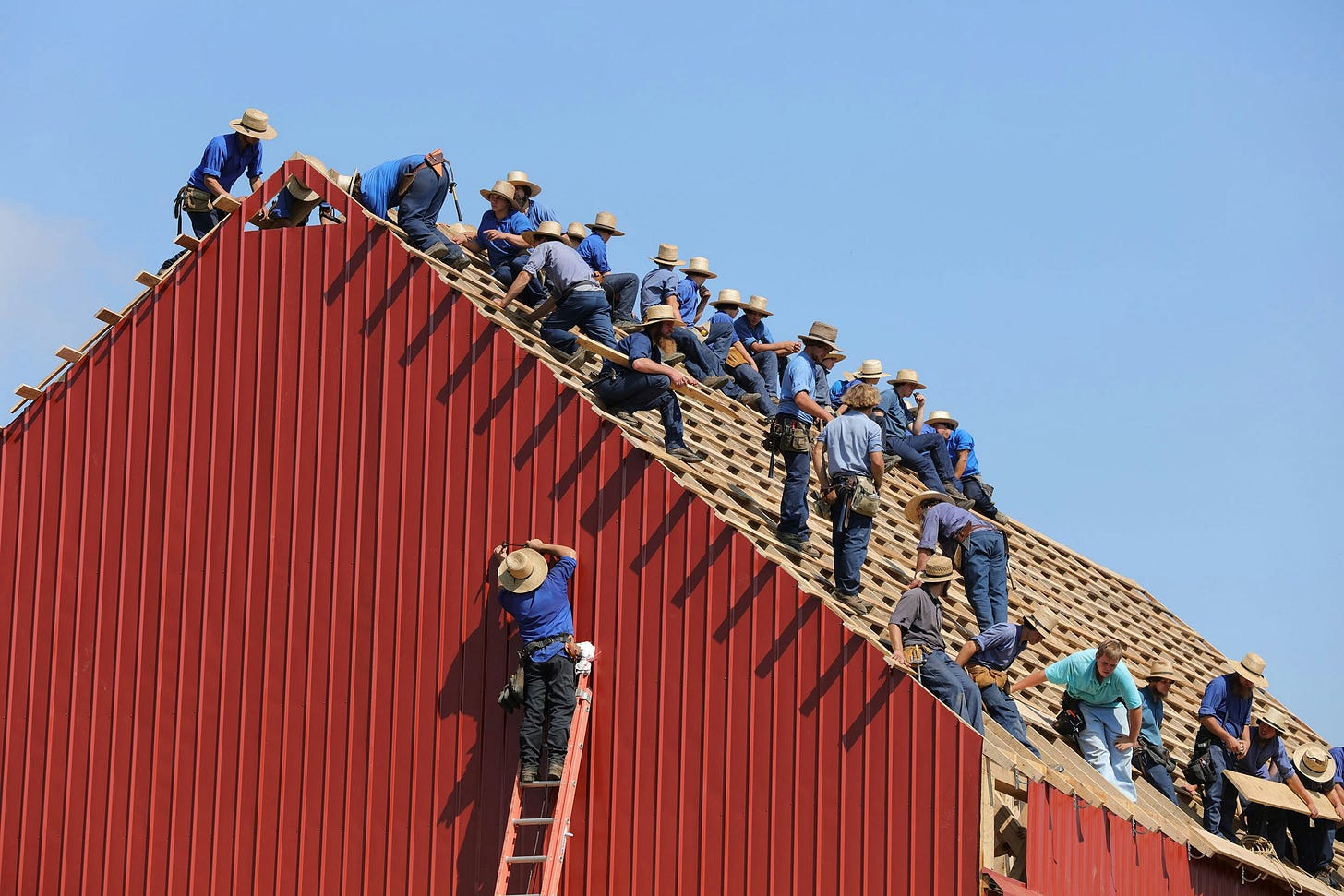Why are we Here?
We were made for each other, so why are so many of us alone?
What does it mean to say we are "born for a better world?"
This phrase came to me while working on the book I've mentioned in past posts, and today I want to share more about it, so you can absorb it with the depth I received it with, when it first landed in my heart.
You and I were both born for a better world. In fact, every single one of us eight-plus billion humans currently on this planet were.
Instead of gazing back in time, let's begin this essay in the present moment. Rather than reaching into psychology theories and practice, let's look inward. Think of this as an icebreaker, a conversation starter, and a primer introducing you to what I consider the most important work of my life: exploring where our human culture went astray and how we find our way back to each other.
How often have you found yourself in the middle of a too-busy day, rushing from one place to the next, trying to complete a never-ending to-do list with a shortage of time to do so?
In these moments, have you heard an inner voice of overwhelm, resentment, or resistance, nagging that this feels like too much?
Do you wish you had more time for your friends and family, more space for long shared meals, and deeper relationships?
If you answered "yes" to any of those questions, you are perfectly normal and in good company, even if you feel alone in your struggles.
To better understand why these feelings are so widespread, ask yourself these questions, and take your time to answer them honestly, from the heart:
1) Does my sense of worth come from my job title, my material possessions, or the amount of money I make and have saved?
2) What have I given up or sacrificed for career and/or monetary success?
3) Do I feel deeply connected with my community?
4) Am I satisfied with the level of intimacy and connection I feel with the people in my life?
Now, did any of these questions make you feel anxious? Sad? Do you feel a longing sensation or a sense of lack?
Almost all of us do. And it's not our fault.
You see, living in separation as we do in the West (and increasingly across the globe) is counter to our deepest instincts. It's counter to the way our brains are hardwired.

This interview with scientist Matthew Lieberman goes into more depth, but his research explains how our need for social connection is as powerful as our need for food and water.
The science is unequivocal, social interaction is critical to our well-being, offering benefits from lower blood pressure to increased longevity.
Why then are we living such relatively disconnected lives?
In short, it's the stranglehold of our consumer culture that keeps us on our personal hamster wheels of individualism and acquisition. The hyper-individualistic lives our culture has us leading don't leave much space for rich relational lives, interdependent communities, and mutually beneficial social bonds.
We are walking around with brains longing for connection and social bonds. But these are also brains with ancient triggers and drives that make them vulnerable to exploitation: We find ourselves falling prey to the bait-and-switch of cultural systems that press the same brain buttons we would normally have used to engage with one another.
Think about it. The rush of delight experienced after a flurry of likes on a post, or the pride we feel when we are recognized at work by our colleagues for our excellent performance are simply substitutes for our genuine longing for each other. Think also of the hope we feel when we buy something a savvy advertisers has promised will make us more attractive, happier, and improve our social standing: Our brains have been hijacked to believe belongings open a doorway to connection.
The truth is that we were born into a world where our culture values productivity and wealth over community. We accept transactional relationships as the norm and bear the weight of parenting and surviving individually, rather than the way our ancestors did it: together, for a lifetime, in a village setting.
Our ancestors likely lived with little loneliness or social anxiety, swaddled in the comfort of having been welcomed and valued from the moment they came into the world. Their lives were inextricably connected, and their work was communal and shared.
Once, we lived with an ease that comes from knowing, deeply knowing, that we, along with everyone around us, belong inside the circle of life.
The purpose of this Substack is to bring my decades of experience as a therapist to a wider audience. To share ideas and reflections about the ways our current culture keeps us from experiencing the fullness of the community we were born for. But it isn't a critique — it is an exploration of where we are and a path toward a better future. A roadmap to the better world we were born for.

I welcome your comments, questions, and contributions, as this is a journey we are all on together.
It is an honor to have you here.



Hi Carl, I fully agree with what you say about our need for connection.
I just wanted to share this first post I wrote when joining Substack back in September, 2023, when my intention was to write about big ideas. Then October 7th came along and changed things for me...
Anyways, here it is. I think it embodies your idea about the need for connection. https://ideasbigandwild.substack.com/publish/posts/detail/136954873?referrer=%2Fpublish%2Fhome%3Futm_source%3Dsubstack%26utm_content%3Ddashboard_pub_switcher